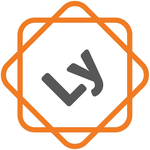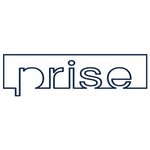Description

OneShield Policy

Insly
Comprehensive Overview: OneShield Policy vs Insly
OneShield Policy and Insly Overview
OneShield Policy:
a) Primary Functions and Target Markets:
- Primary Functions: OneShield Policy is a comprehensive end-to-end policy management system designed for the insurance industry. It automates the entire policy lifecycle, including policy administration, underwriting, billing, claims handling, and reporting. Its functionalities are highly customizable to meet specific insurer needs, offering seamless integration with other enterprise systems.
- Target Markets: The solution primarily targets the property and casualty (P&C) insurance market, serving large to mid-size insurance carriers, MGAs (Managing General Agents), and reinsurers. It is especially suitable for organizations that require complex policy administration and those seeking to enhance operational efficiencies.
b) Market Share and User Base:
- OneShield enjoys a significant presence in North America and has been expanding into other international markets. While specific market share figures may not be publicly available, OneShield's focus on large and mid-size insurers gives it substantial leverage in the P&C sector. The solution's user base is composed primarily of corporate clients in the insurance domain, ranging from well-established firms to dynamic MGAs.
c) Key Differentiating Factors:
- OneShield Policy offers deep configurability, allowing clients to tailor the system to highly specialized insurance products and business processes. This customization capacity is one of its strongest points, facilitating adaptability and scalability.
- The reputation of OneShield rests on its robust and comprehensive feature set, catering to complex insurance operations, which makes it less suited for smaller or start-up insurers that may not require such expansive capabilities.
Insly:
a) Primary Functions and Target Markets:
- Primary Functions: Insly is a cloud-based insurance software solution that serves both as a policy administration and broker management system. Key functionalities include policy management, quotes, invoicing, customer relationship management (CRM), and reporting. It offers an easy-to-use platform that simplifies insurance workflows, making it accessible to users with varying technical expertise.
- Target Markets: Insly targets smaller insurance companies, MGAs, brokers, and agents, focusing on streamlining operations for those sectors that focus on speed and efficiency over deep customization.
b) Market Share and User Base:
- Insly has a growing presence predominantly in Europe, with expanding operations in other regions through its focus on affordability and ease of use. It tends to cater to small to mid-sized brokers and agencies, providing them a scalable solution for policy management. The specific market share is difficult to ascertain, but the user base is typically smaller entities looking for a cost-effective, out-of-the-box solution.
c) Key Differentiating Factors:
- Insly's differentiator lies in its simplicity, intuitive interface, and cloud-based delivery model—all of which facilitate quick deployment and low overhead costs. This makes it especially appealing to smaller firms and those without extensive IT infrastructures.
- Its SaaS model offers flexibility and affordability, appealing to start-ups and smaller-scale operations that require a robust solution without the complexity of larger systems like OneShield.
Comparative Analysis:
-
Complexity and Customization vs. Simplicity and Cost-effectiveness:
- OneShield offers a highly customizable solution tailored for complex operations in large-scale insurance firms, whereas Insly provides simplicity and ease of use ideal for smaller entities or start-ups.
-
Deployment:
- OneShield is typically deployed in environments where integration with multiple existing systems and customization are key, while Insly's cloud-based approach offers rapid deployment and ease of maintenance.
-
Market Orientation:
- OneShield targets larger entities with specific and complex insurance needs across the P&C space, while Insly is best suited for smaller players seeking straightforward policy and client management solutions.
In summarizing, both products serve distinct segments within the insurance software market with their unique strengths and tailored offerings. OneShield excels in environments requiring extensive customization and scale, while Insly is a go-to solution for basic, flexible, and budget-friendly policy management.
Contact Info

Year founded :
Not Available
Not Available
Not Available
Not Available
Not Available

Year founded :
2014
+44 20 3637 2590
Not Available
United Kingdom
http://www.linkedin.com/company/inslytech
Feature Similarity Breakdown: OneShield Policy, Insly
To provide a feature similarity breakdown for OneShield Policy and Insly, let's examine their offerings as of the most recent data:
a) Common Core Features
-
Policy Management: Both OneShield Policy and Insly provide robust policy administration capabilities. This includes policy issuance, endorsements, renewals, and cancellations.
-
Underwriting: Each platform supports underwriting processes, allowing insurers to set rules and automate decision-making based on risk assessment.
-
Billing and Invoicing: Both solutions offer billing functionalities, helping users manage invoices, process payments, and handle collections efficiently.
-
Claims Management: These platforms offer basic claims management features that include claims filing, tracking, and settlement processes.
-
Reporting and Analytics: They both provide reporting tools that allow users to generate financial reports, performance metrics, and other analytic insights.
-
Integration Capabilities: Both OneShield and Insly offer integration options with various third-party services and platforms to enhance their functionalities, although the specifics might vary in terms of ease and options available.
b) User Interface Comparison
-
OneShield Policy: Typically known for a comprehensive and detailed user interface. It leans towards providing extensive customization options and a broad range of functionalities directly accessible from the dashboard. However, this might come at the expense of simplicity, potentially requiring more initial training for new users.
-
Insly: Prioritizes a user-friendly interface with a focus on simplicity and ease of use. Insly tends to be more intuitive, enabling quicker onboarding processes. It is designed to appeal more to smaller insurance companies and brokers looking for agility and ease.
The user experience comparison suggests that OneShield might be more suited for large insurers with complex needs, while Insly may cater more to smaller, agile firms or startups.
c) Unique Features
-
OneShield Policy:
- Customizable Product Configuration: OneShield provides highly customizable configurations for insurance products which can be tailored to fit specific business needs, offering advantage to insurers with complex or unique product lines.
- Advanced Workflow Automation: Offers sophisticated workflow automation capabilities which can enhance efficiencies across different stages of policy management.
-
Insly:
- Marketplace Integration: Insly allows users to easily integrate with insurance marketplaces and platforms, which can be particularly useful for insurance brokers seeking to expand their distribution channels.
- Broker-Focused Features: As Insly caters more explicitly to brokers, it includes features like commission tracking and broker-specific reporting tools that are particularly useful for intermediary operations.
These distinctions might help companies decide based on their specific requirements related to size, industry role, and complexity of insurance products offered.
Features

Not Available

Not Available
Best Fit Use Cases: OneShield Policy, Insly
When considering insurance software solutions like OneShield Policy and Insly, it's important to understand their distinct functionalities and the business contexts in which each can be most effectively utilized. Here's a breakdown of their best fit use cases:
OneShield Policy
a) Best fit for types of businesses or projects:
- Large Insurance Companies: OneShield Policy is tailored for larger insurance companies looking for comprehensive policy management solutions. It supports a wide range of insurance products, including personal, commercial, life, and health lines, which makes it suitable for insurers with diverse portfolios.
- Complex Policy Management Needs: Businesses that require extensive customization and robust tools for managing complex products and workflows would benefit from OneShield’s capabilities. It offers significant flexibility through its rules engine and configurability.
- Organizations with High Volume and Complexity: OneShield is designed to handle high transaction volumes and complex processes, making it appropriate for companies that deal with intricate policy administration requirements.
- Need for Integration Capabilities: Companies looking to integrate policy administration with other enterprise systems may prefer OneShield, given its strength in providing seamless integration capabilities with various backend systems and third-party applications.
Insly
b) Preferred scenarios for use:
- Insurance Agencies and Brokers: Insly is particularly well-suited for insurance brokers and agencies that need a straightforward, cloud-based solution for policy management, quotes, and customer management.
- Smaller to Mid-sized Companies: Due to its ease of use and quick implementation, Insly is often the preferred choice for smaller insurance firms that do not have the resources to manage complex system configurations.
- Cost-sensitive Projects: For businesses that are looking to keep costs down while still accessing essential policy management features, Insly offers a cost-effective solution that scales as the business grows.
- Companies Looking for SaaS Solutions: Insly’s software-as-a-service model caters to companies that prefer a subscription-based solution with a lower upfront investment compared to traditional on-premises systems.
How These Products Cater to Different Industry Verticals or Company Sizes
-
Industry Verticals:
- OneShield Policy: With its deep customization options and support for diverse insurance lines, OneShield is capable of addressing the nuanced needs of various industry verticals. It’s particularly strong in verticals like life and health insurance, where complex policy configurations and regulatory compliance are crucial.
- Insly: Primarily focused on the property and casualty insurance markets but can be adapted for other lines depending on the setup and minimal customization requirements.
-
Company Sizes:
- OneShield Policy: Geared more towards large enterprises due to its comprehensive feature set and the ability to support complex business operations. It’s a good fit for companies with dedicated IT departments and the resources required for extensive implementation efforts.
- Insly: Ideal for small to mid-sized companies and startups. Its user-friendly interface and lower implementation hurdles make it accessible for organizations without significant IT infrastructure or those needing a quick-to-market solution.
Each platform offers unique advantages and is designed to cater to specific business models and operational needs. Companies should assess their size, complexity, and specific requirements to choose between OneShield Policy and Insly effectively.
Pricing

Pricing Not Available

Pricing Not Available
Metrics History
Metrics History
Comparing teamSize across companies
Conclusion & Final Verdict: OneShield Policy vs Insly
To provide a conclusion and final verdict for OneShield Policy and Insly, we must evaluate each product based on several factors including features, pricing, scalability, user-friendliness, customer support, and integration capabilities. Both are insurance management solutions but may cater to different aspects of business needs.
Conclusion and Final Verdict
a) Best Overall Value
Determining which product offers the best overall value depends on the specific needs of your insurance company. Typically, OneShield Policy is known for being a comprehensive and scalable solution for larger organizations with complex insurance products, whereas Insly often appeals more to smaller entities or brokers looking for a cost-effective, user-friendly interface.
If your organization requires robust features, complex policy management, and has plans for significant growth, OneShield Policy may offer the best value. On the other hand, if you are a smaller brokerage or startup looking for a straightforward, easy-to-implement solution, Insly could provide the best overall value.
b) Pros and Cons
OneShield Policy:
-
Pros:
- Comprehensive functionality with deep insurance industry focus.
- Highly customizable to fit complex business requirements.
- Scalable architecture suited for large organizations.
- Strong customer support with tailored solutions.
-
Cons:
- Higher cost due to extensive features.
- Steeper learning curve may require more intensive training.
- Implementation can be time-consuming.
Insly:
-
Pros:
- User-friendly interface that is easy to navigate.
- Cost-effective, suitable for smaller businesses and startups.
- Quick setup and deployment.
- Flexible for straightforward policy management.
-
Cons:
- May lack depth in features needed by larger companies.
- Limited scalability for very large or complex operations.
- Customer support and customization options may be less robust compared to OneShield.
c) Recommendations for Users
-
Assess Your Needs: Evaluate your organization's size, complexity of insurance products, and growth plans. OneShield Policy is typically better suited for larger enterprises with intricate policy needs, while Insly might be ideal for smaller firms or those with straightforward operations.
-
Budget Considerations: Consider your budget for software solutions. Insly might be a more economical choice for smaller organizations, but the investment in OneShield might be worth it for larger companies seeking extensive and scalable solutions.
-
Scalability: If your company anticipates significant growth or diversification in the near future, OneShield's scalability might provide a better long-term fit.
-
Implementation and Training: Be prepared for potential longer implementation times with OneShield, and ensure resources for training. Insly might provide a faster ramp-up period.
-
Customer Support: Evaluate the importance of robust customer support. OneShield generally offers more tailored support services compared to Insly.
In summary, the decision between OneShield Policy and Insly should be guided by organizational needs, budget, and long-term strategic goals. Each offers unique strengths that cater to different types of businesses within the insurance industry.
Add to compare



